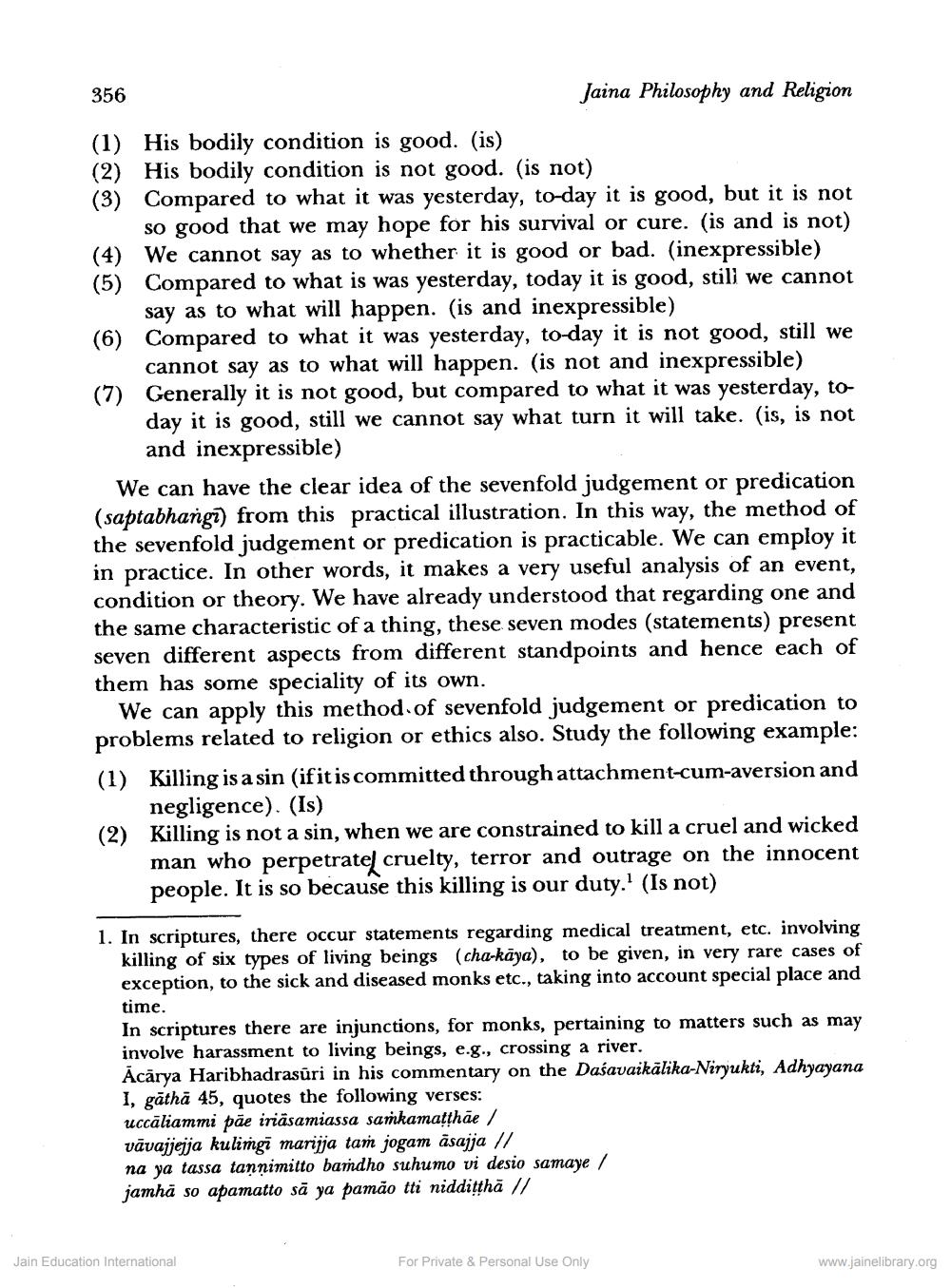________________
356
Jaina Philosophy and Religion (1) His bodily condition is good. (is) ) His bodily condition is not good. (is not)
Compared to what it was yesterday, to-day it is good, but it is not so good that we may hope for his survival or cure. (is and is not) We cannot say as to whether it is good or bad. inexpressible) Compared to what is was yesterday, today it is good, still we cannot say as to what will happen. (is and inexpressible) Compared to what it was yesterday, to-day it is not good, still we cannot say as to what will happen. (is not and inexpressible) Generally it is not good, but compared to what it was yesterday, today it is good, still we cannot say what turn it will take. (is, is not
and inexpressible) We can have the clear idea of the sevenfold judgement or predication (saptabhangi) from this practical illustration. In this way, the method of the sevenfold judgement or predication is practicable. We can employ it in practice. In other words, it makes a very useful analysis of an event, condition or theory. We have already understood that regarding one and the same characteristic of a thing, these seven modes (statements) present seven different aspects from different standpoints and hence each of them has some speciality of its own.
We can apply this method of sevenfold judgement or predication to problems related to religion or ethics also. Study the following example: (1) Killing is a sin (if it is committed through attachment-cum-aversion and
negligence). (Is) Killing is not a sin, when we are constrained to kill a cruel and wicked man who perpetrate cruelty, terror and outrage on the innocent people. It is so because this killing is our duty.' (Is not)
(9)
1. In scriptures, there occur statements regarding medical treatment, etc. involving
killing of six types of living beings (cha-kāya), to be given, in very rare cases of exception, to the sick and diseased monks etc., taking into account special place and time. In scriptures there are injunctions, for monks, pertaining to matters such as may involve harassment to living beings, e.g., crossing a river. Acārya Haribhadrasűri in his commentary on the Daśavaikälika-Niryukti, Adhyayana 1, gāthā 45, quotes the following verses: uccāliammi päe iriasamiassa samkamatthāe / vāvajjejja kulimgi marijja tam jogam āsajja // na ya tassa tannimitto bandho suhumo vi desio samaye / jamhā so apamatto sa ya pamão tti nidditthā //
Jain Education International
For Private & Personal Use Only
www.jainelibrary.org




